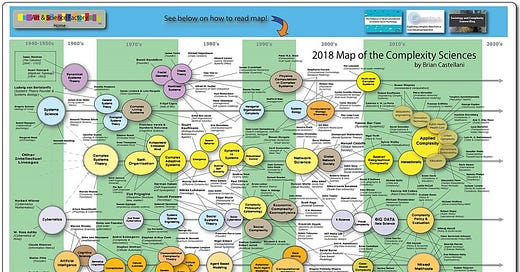Be the change you want to see in your models
Last week, a friend of mine sent me a quotation by St Augustine, a North African bishop who lived from 354 to 430 AD: “Bad times, hard times - this is what people keep saying. But let us live well, and times shall be good. We are the times: such as we are, such are the times.”
My friend was talking about Brexit, but St Augustine's core thought is relevant to so many aspects of this unique and volatile point in history. And it is surprising how many thinkers have had the same fundamental insight: not much about the future is set in stone, and we ourselves have agency to create the world as we would like it to be - if only we are prepared to seize the opportunity and put in the work.
Mahatma Ghandi is often reported to have exhorted us to "Be the change we want to see in the world. It turns out he never actually said those words, but he did say something along the same lines: "As a man changes his own nature, so does the attitude of the world change towards him... We need not wait to see what others do.”
Here are some others saying essentially the same thing:
Henri Bergson (19th and 20th century French philosopher): "The future is not what is going to happen, it is what we are going to do."
Alan Kay (American computer scientist): "The best way to predict the future is to invent it"
Jacob Bronowski (20th century Polish-British mathematician): "The creative personality is always one that looks on the world as fit for change and on himself as an instrument for change."
Angela Davis (US professor and political activist): "I am no longer accepting the things I cannot change. I am changing the things I cannot accept"
Ilya Prigogine, Nobel Prizewinner in Chemistry, 1977: "What we do today depends on our image of the future, rather than the future depending on what we do today. We build our equations by our actions. These equations, and the future they represent, are not written in nature. In other words, time becomes construction."
Some of the leading clean energy and climate thinkers make the same point:
Amory Lovins (energy efficiency guru): "Our energy future is not fate, but choice"
Greta Thunberg (climate change's very own Joan of Arc): “Instead of worrying about how that future might turn out, I’m going to try to change that future while I still can.”
I bet it is even mathematically true that in a chaotic system - such as the world we live in - the resources required to forecast the future beyond a certain point start to dwarf the resources required to create it.
Think about that next time you read one of those articles about the planet and the economy in 2050 or 2100!





